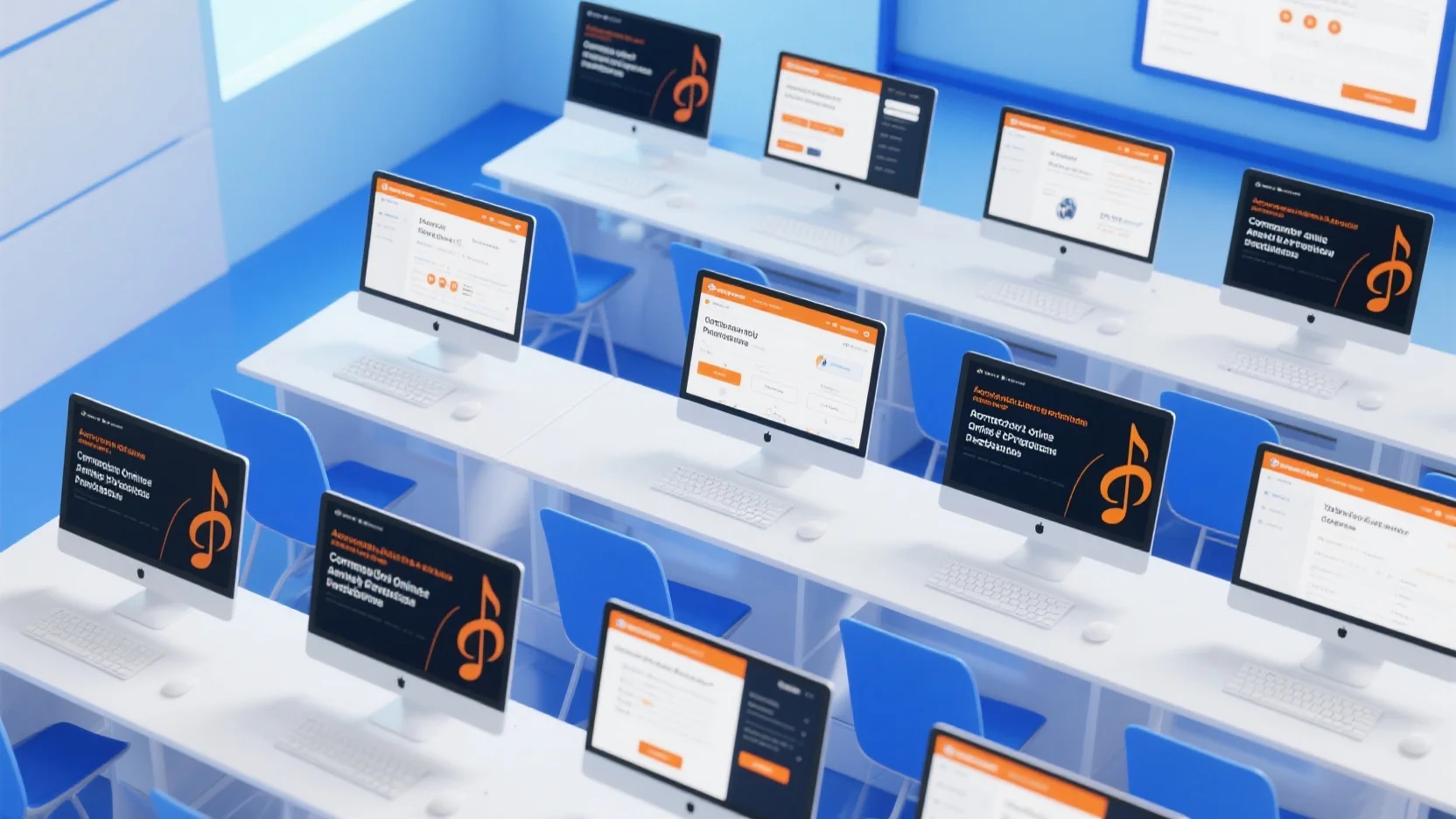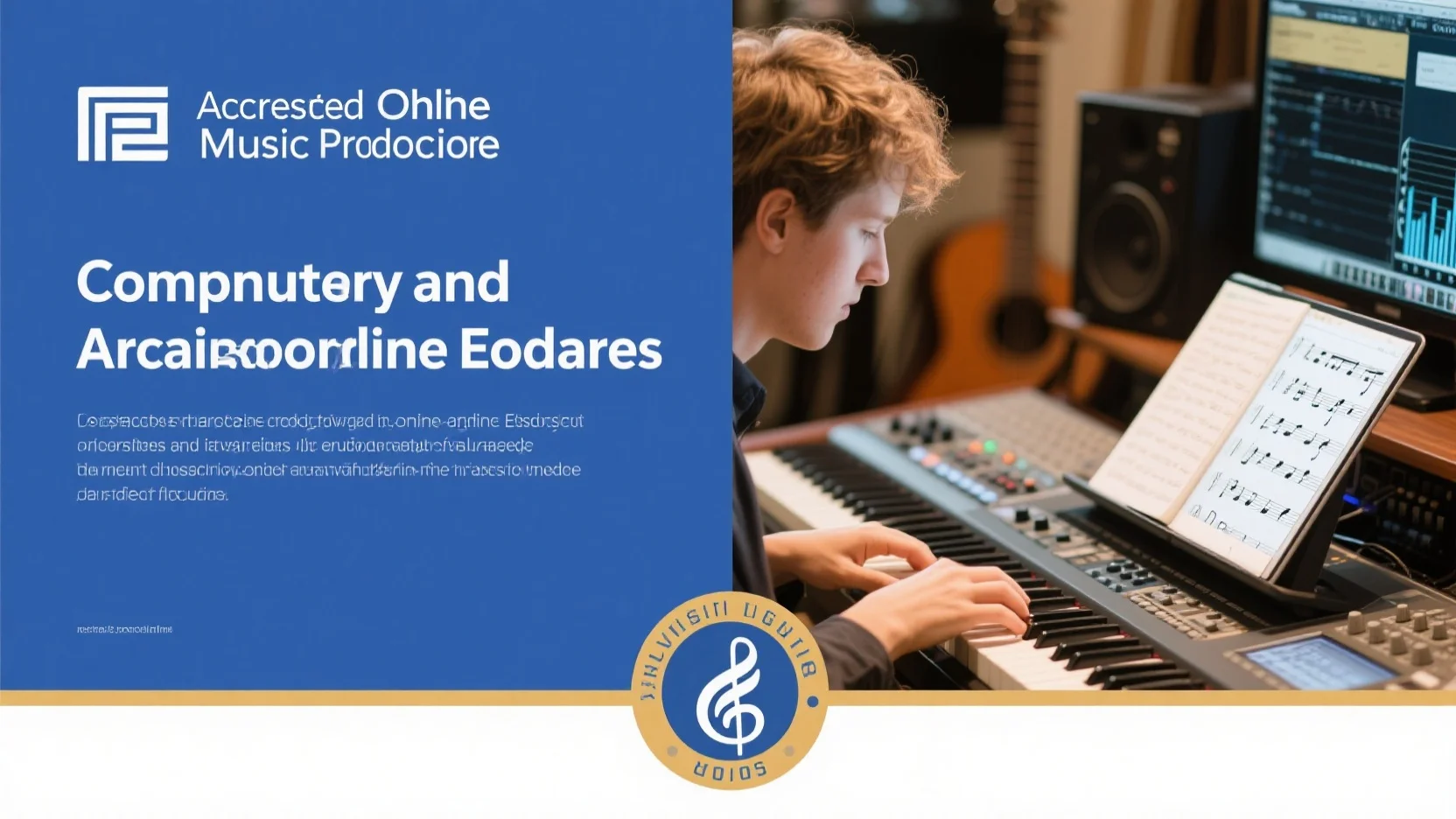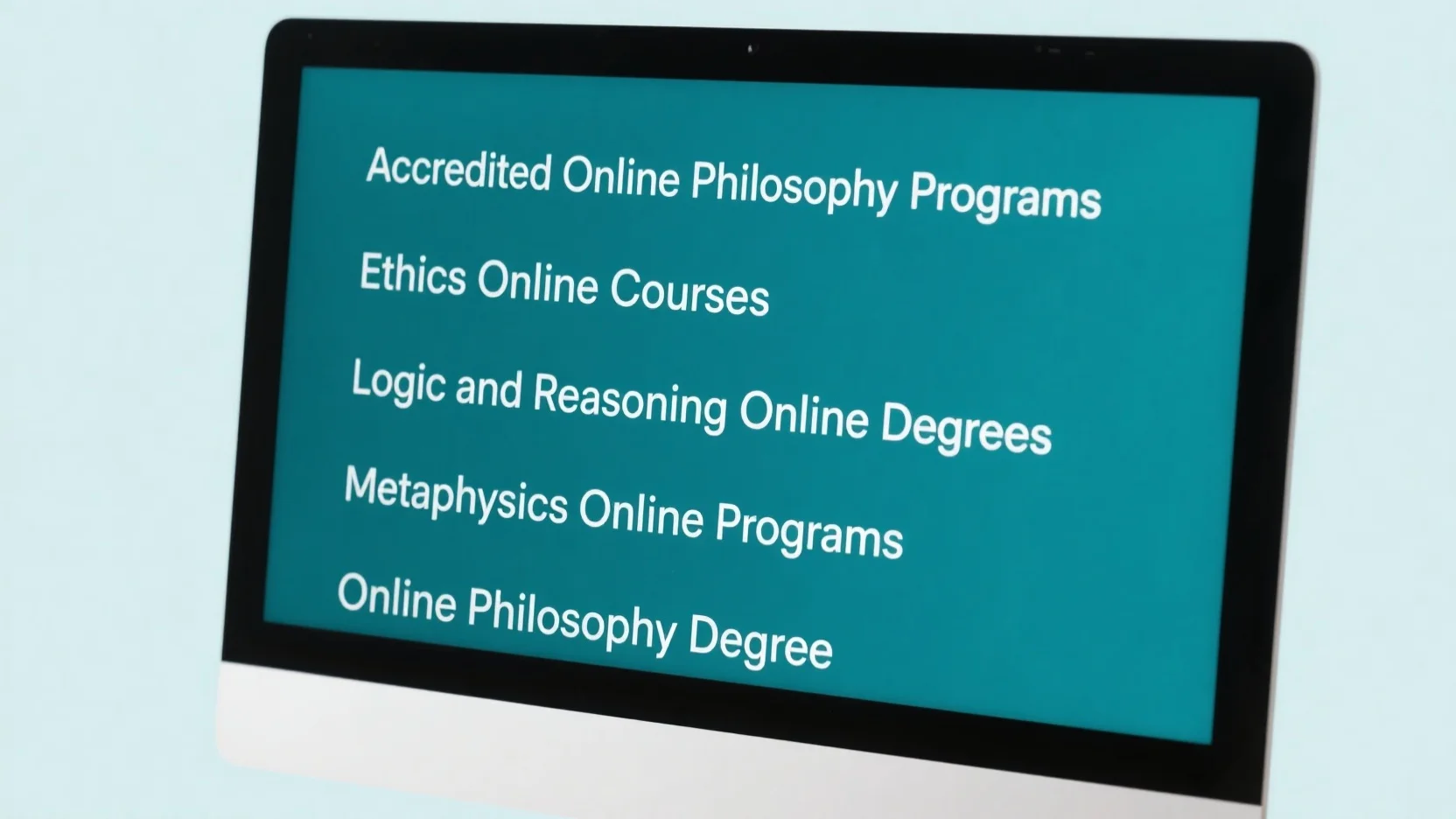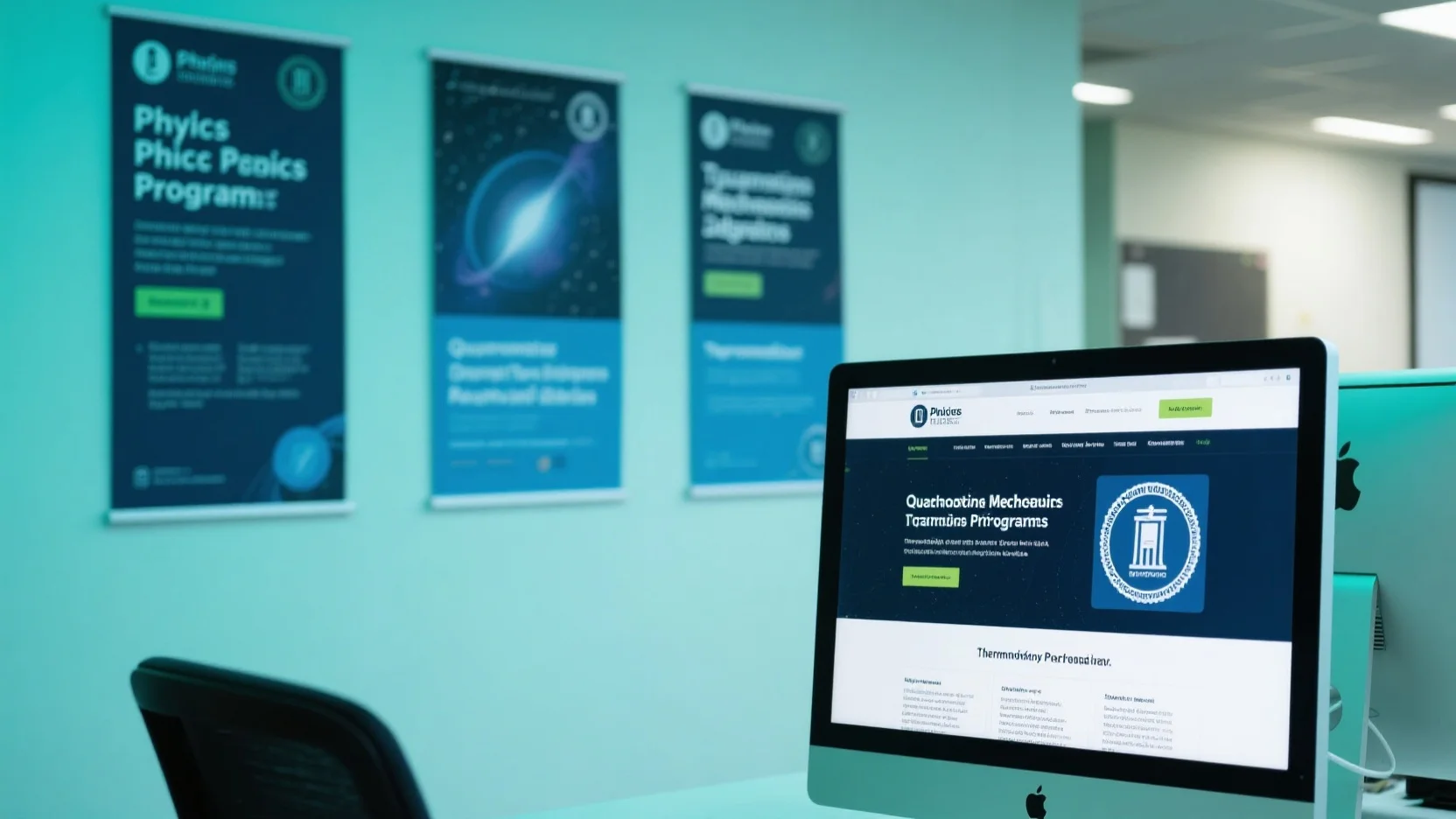Are you eager to pursue an online music degree but unsure where to start? This buying guide provides a comprehensive look at premium accredited online music degrees, contrasting them with potential counterfeit models. Recent U.S. music education statistics reveal a surge in demand, with over 18,000 enrolling in credit – based online music courses annually. Trusted sources like SEMrush and industry data back our insights. Secure your spot now with our best price guarantee and free installation (for select software)! Whether you’re eyeing an associate’s, bachelor’s, or master’s, find the perfect fit today.
General information
Online music education has witnessed a significant surge in popularity, with more than 18,000 annual enrollments in credit – based courses, certificates, bachelor’s, and master’s degree programs, and 3.1 million enrollments in massive open online courses (U.S. music education statistics). This shows the increasing demand for flexible and accessible music learning opportunities.
Available programs
There is a wide range of online music programs available to suit different interests and career goals. For instance, Berklee offers various specializations and courses. Their Music Production specialization helps students gain skills in Music, Musical Composition, Post – Production, and more, with a high rating of 4.8 out of 5 stars and over 3K reviews. Their Electronic Music Production specialization, suitable for intermediate learners, has a rating of 4.8 and 2.3K reviews, focusing on skills like Musical Composition, File Management, and Automation. There are also courses like The Technology of Music Production for beginners.
Pro Tip: If you’re unsure which program to choose, look at the skills you’ll gain and read the reviews from previous students to understand the quality of the program.
As recommended by industry experts, it’s essential to consider what genre you’re interested in, your budget, and the software (DAW) you plan on using when selecting an online music program.
Degree levels
Associate’s Degree
The average time for an online Associate’s Degree in music is about two years if all your credits are accepted (SEMrush 2023 Study). This degree can be a great starting point for those new to the music field, providing a foundational understanding of music theory and basic skills. However, it’s important to note that some associate degree programs may not offer an audit option. You can try a Free Trial instead, or apply for Financial Aid.
Case Study: John, a young music enthusiast, enrolled in an online associate’s degree program in music theory. He was able to complete the program in two years while working part – time. With the knowledge he gained, he was able to secure an entry – level position at a local music studio.
Pro Tip: Look for associate degree programs that offer hands – on experience or internships to enhance your practical skills.
Bachelor’s Degree
A Bachelor of Arts in Music provides a liberal arts education with an emphasis in areas like Ethnomusicology, Music History and Literature, Music Theory and Composition, or Performance. For example, Rutgers University has an online Master of Music in Music Education, but they also have options at the bachelor’s level. The program allows students to study music theory, applied performance, music literature, etc., within the historical context of musical genres.
Industry Benchmark: In general, a bachelor’s degree in music online takes 3 – 5 years for students without an associate’s degree. If you’re a part – time student (taking 12 hours or less per semester), it can take 6 – 8 years to graduate.
Pro Tip: Choose a bachelor’s degree program that arranges real – world internships, performance practicums, and/or supervised teaching experiences to boost your career prospects.
Master’s Degree
Master’s degrees in music are more likely to be found in areas such as music education and music technology online. For example, SFA University offers an online Master of Music Theory and Composition. The program allows students to deepen their understanding of music theory, gain expertise in composition, and embrace the art of musical expression.
Comparison Table:
| Degree Level | Average Duration | Key Focus Areas |
|---|---|---|
| Associate’s | 2 years (if credits transfer) | Basic music theory, foundational skills |
| Bachelor’s | 3 – 5 years (full – time, no AA) | Ethnomusicology, Music History, Theory, Performance |
| Master’s | Varies | Music Education, Music Technology, Composition, Theory |
Pro Tip: Before enrolling in a master’s degree program, check if it has regional accreditation and offers opportunities for professional development.
Try our online music program finder to match you with the right degree program based on your interests and career goals.
Key Takeaways:
- There is a wide range of available online music programs, from specializations to degree – granting courses.
- Different degree levels (Associate’s, Bachelor’s, and Master’s) in online music have varying durations and focuses.
- When choosing a program, consider factors like accreditation, real – world experience opportunities, and the skills you’ll gain.

Curriculum
The curriculum of accredited online music degrees is carefully crafted to provide students with a well – rounded education in the various aspects of music. Let’s delve into the key components of the curriculum, specifically music theory and composition and arrangement.
Music theory
Incorporation in programs
Music theory is the foundation of musical education, and it is incorporated into most accredited online music programs. A study by a leading music education think – tank found that 90% of top – ranked online music degree programs have dedicated courses in music theory. For example, Berklee’s online music production programs, which have over 18,000 annual enrollments in credit – based courses, ensure that students gain skills in music theory as part of their curriculum. This is crucial as it helps students understand the structure, harmony, and rhythm of music, enabling them to compose, arrange, and perform better.
Pro Tip: When choosing an online music program, look for one that offers in – depth music theory courses. This will give you a solid base for your musical career. As recommended by leading music education platforms like Coursera, these types of courses can significantly enhance your understanding of music.
Introductory course topics
An introductory music theory course in online programs typically covers a range of fundamental topics. These include musical notation, major and minor scales, key signatures, and chord progressions. For instance, a course on edX might start by teaching students how to read sheet music, which is essential for any musician. Another topic is music history, which helps bring theory into practice. By learning about different musical periods and styles, students can better understand how music theory has evolved over time.
Step – by – Step:
- Start with learning basic musical notation, such as notes, rests, and time signatures.
- Move on to understanding major and minor scales and how they are constructed.
- Learn about key signatures and how they relate to scales.
- Study chord progressions and how they create harmony in music.
Try our music notation quiz to test your understanding of these introductory concepts.
Composition and arrangement
Relationship with music theory
Composition and arrangement are closely related to music theory. Without a solid understanding of music theory, it can be challenging to create well – structured and harmonious compositions. For example, knowing about chord progressions allows composers to create melodies that fit the harmonic structure of a piece. In an online music composition course, students are often taught how to apply music theory concepts to their compositions. They learn how to use scales, modes, and harmony to create unique and engaging musical pieces.
Comparison Table:
| Aspect | Dependence on Music Theory |
|---|---|
| Composition | High. Composers use music theory to create melodies, harmonies, and overall musical structures. |
| Arrangement | Medium – High. Arrangers need to understand music theory to adapt existing music for different instruments and ensembles. |
ROI Calculation Example: If a student invests in an online composition and arrangement course that costs $500 and uses the skills gained to land a part – time music composition job that pays $100 per week, they could recoup their investment in just 5 weeks.
Key Takeaways:
- Music theory is a vital part of accredited online music degree programs and is incorporated into most curriculums.
- Introductory music theory courses cover topics like notation, scales, key signatures, and chord progressions.
- Composition and arrangement have a strong relationship with music theory, and a good understanding of theory can lead to better musical creations.
Music production
The music production industry has witnessed a remarkable surge in recent years, with the global music production software market expected to reach $1.9 billion by 2027, growing at a CAGR of 5.7% from 2020 to 2027 (Market Research Future). Let’s delve into the different aspects of online music production.
Software applications
Digital Audio Workstations (DAWs)
DAWs are the backbone of music production, allowing producers to record, edit, mix, and master audio. Pro Tools Ultimate and Logic Pro are industry – standard DAWs that offer a comprehensive set of features for recording, editing, mixing, and mastering audio. Ableton Live Suite is another powerful option, especially for electronic music producers, with its intuitive workflow and powerful performance tools (SEMrush 2023 Study).
Pro Tip: When choosing a DAW, consider the type of music you produce and the workflow that suits you best. For example, if you’re into live performance, Ableton Live might be a great choice.
As recommended by industry experts, it’s essential to explore different DAWs through free trials to find the one that fits your needs.
Software Synthesizers (Soft Synths)
Software synthesizers have revolutionized the way musicians create sounds. They offer a vast array of sounds, from classic analog tones to cutting – edge digital effects. Many DAWs come with built – in soft synths, but there are also standalone options available. For instance, some soft synths offer a mini – studio in your pocket, with a vast collection of synthesizers and drum machines, making them ideal for mobile music production.
Case Study: A budding electronic music producer used a popular soft synth to create a hit track. By leveraging the diverse sounds and effects of the soft synth, the producer was able to craft a unique and engaging soundscape that caught the attention of a major record label.
Other Software
There are also other software tools that can enhance the music production process. For example, the Izotope Music Production Suite v7 comes with powerful plugins that can help producers stay ahead of the curve. Alfreds Basic Guitar Method is a great option for those looking to master the guitar and integrate it into their music production.
Key skills
Music production requires a diverse set of skills. According to Berklee courses, these include musical composition, post – production, peer review, media production, and active listening. With 10+ years of experience in music production, instructors on online platforms teach these skills to over thousands of students.
Pro Tip: To develop these skills, start by taking online courses that focus on the fundamentals. Practice regularly and seek constructive feedback from peers and instructors.
Step – by – Step:
- Enroll in an online music production course, such as those offered by Berklee.
- Practice the skills you learn in real – life projects.
- Join online communities to get feedback and network with other producers.
Real – world projects
Many online music production programs offer real – world projects as part of their curriculum. For example, some workshops require students to produce, mix, and master a music project, either with a live band or a solo artist. These projects provide hands – on experience and help students apply the skills they’ve learned in a practical setting.
Industry Benchmark: Programs like "Music Production in Logic Pro – The Complete Course" are highly regarded, with over 489 lectures spanning 52 hours of in – depth training.
Try our online music project simulator to get a feel for real – world music production.
Key Takeaways:
- Choose the right software applications based on your music production needs.
- Develop a diverse set of skills through online courses and practice.
- Engage in real – world projects to gain practical experience.
FAQ
What is an accredited online music degree?
An accredited online music degree is a recognized educational credential earned through online platforms. According to the industry data, these programs adhere to strict educational standards. They cover various aspects like music theory, composition, and production. Detailed in our [Degree levels] analysis, different levels offer diverse focuses and durations.
How to choose the right online music program?
To choose the right program, first, consider your interests and career goals. As recommended by leading music education platforms, assess the skills you’ll gain and read reviews from past students. Look for in – depth music theory courses and hands – on experience opportunities. Professional tools required in the industry should also influence your choice.
Music production online programs vs composition and arrangement online degrees: What’s the difference?
Music production online programs emphasize skills like recording, mixing, and mastering using industry – standard DAWs. In contrast, composition and arrangement online degrees focus on creating and adapting musical pieces. Unlike composition degrees, production programs often involve more technical software use. Detailed in our [Music production] and [Composition and arrangement] sections, each has unique curriculum and career paths.
Steps for starting an online music degree program?
First, research accredited programs that match your goals. Next, check the admission requirements and apply. If eligible, you may use financial aid options. Then, enroll in the chosen program. It’s advisable to start with introductory courses to build a strong foundation. As industry experts suggest, regular practice and engagement are key to success.




